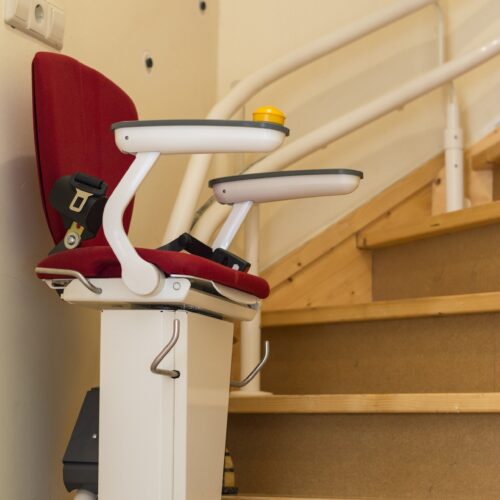
Washington House Votes To Delay Long-Term Care Tax For 18 Months

Read
Following widespread criticisms and voter pushback, the Washington state House on Wednesday voted to delay the collection of a new payroll tax to fund a state-run, long-term care insurance program called WA Cares.
Lawmakers also approved a second bill to allow certain individuals who wouldn’t benefit from the program to opt out of paying the premium.
The votes followed a back-and-forth debate during which majority Democrats defended the program as the “best option” to provide long-term care coverage for Washingtonians while minority Republicans assailed the first-in-the-nation program as fatally flawed and insolvent in the long term.
First passed in 2019, the WA Cares program aims to address a gap in long-term care services that isn’t being met by private insurers and that, in some cases, forces people to spend their way into poverty to qualify for care under the state’s Medicaid program.
It’s estimated that 7 in 10 Washingtonians will need some amount of long-term care in their lifetimes.
While Democrats remain bullish on the program, they’ve also acknowledged that WA Cares requires more work before it’s ready for primetime. That includes addressing the fact that some people would be required to pay into the program, even though they’d never qualify for the benefit.
Additionally, Democrats recognized that the $0.58 percent payroll tax — which was set to begin January 1 — arrived at a particularly bad time as the COVID-19 pandemic continues to roil the economy and inflation takes a bite out of people’s wallets.
In a precursor to Wednesday’s legislative action, Gov. Jay Inslee in December instructed the state’s Employment Security Department to delay collecting the WA Cares premiums from employers until this spring. However, Inslee didn’t have the power to stop employers from beginning to deduct the premium from employee paychecks.
In fact, he later acknowledged that state agencies were required to begin payroll deductions starting January 1 to comply with state law.
“The Legislature will have an opportunity to fix their bill starting on January 10 when they convene for the session,” Inslee said in a December 23 statement. “It is my hope that they will do that quickly in order to provide clarity to employees and employers.”
Now, Democrats are moving quickly to suspend the program. The “early-action” votes in the House took place on the 10th day of the 60-day legislative session during a time when most bills are still moving through the committee process.
Under the first “fix” bill to pass, the payroll premiums would be delayed until July 1, 2023. Additionally, the WA Cares program would start paying benefits a year-and-a-half later than originally planned, on July 1, 2026.
The bill would also allow those nearing retirement to receive partial benefits, even if they don’t fully vest in the program. Specifically, people born before Jan. 1, 1968 would be eligible for 10 percent of the maximum benefit for each year that they meet the minimum premium payments.
Finally, the bill would refund any premium payments collected prior to the Legislature enacting the delay.
The second bill approved Wednesday would expand the universe of people eligible to opt out of the otherwise mandatory payroll deduction program. This includes certain disabled veterans, spouses or registered domestic partners of active-duty members of the military, temporary worker visa holders and people who are employed in Washington, but live out of state.
These are individuals who already have coverage or wouldn’t benefit from WA Cares because it’s not portable out of state. Eventually, lawmakers might try to make it portable. But that’s not immediately under consideration.
In virtual debate held via Zoom, House Majority Leader Pat Sullivan said Democrats were working “to ensure that the program is as effective and efficient as we can make it.”
But Republicans insisted the program can’t be salvaged.
“I would submit to you that good intentions don’t automatically create good policy,” said Rep. Drew Stokesbary, the ranking Republican on the House budget committee.
Already, more than 470,000 Washingtonians — representing more than a third of the state’s payroll — have requested to opt out of the program after purchasing private long-term care insurance plans, according to figures provided by the Employment Security Department and the state actuary.
That’s nearly five-times higher than the actuary’s baseline assumption of how many people would bail on the program, but it’s also significantly lower than what modelers considered a “high scenario” of 1.5 million opt-outs.
The one-time opt-out opportunity expired November 1, 2021.
Republicans have pointed to the wave of departures from the program as evidence that it’s neither popular, nor financially sustainable over the long haul without a significant increase in the $0.58 percent premium.
In June of last year, the actuary projected that WA Cares would remain solvent through 2075. However, that analysis has not been updated since the November 1 opt-out deadline passed. It’s also not yet clear what impact allowing disabled veterans, out-of-state workers and other to exit will have on the program’s bottom line. Ultimately, about three million Washington workers are expected to pay into the program.
Democrats maintain WA Cares is a good solution and will be sustainable over the long haul. But they also say an 18-month delay in the program will give them time to make adjustments this year and, again, during the 2023 legislative session. Additional recommendations on how to improve the program are expected from the state’s long-term care commission later this year.
Republicans, though, see the delay as an effort to kick the can until after the 2022 midterm elections when most state lawmakers are up for re-election.
“All the proposal from the majority does is dodge the 2022 election, it by no means fixes the problem,” said state Sen. Mark Schoesler during the Republican’s weekly news conference on Tuesday.
Legislative Republicans have introduced bills to repeal WA Cares and replace it with a reinsurance program designed to incentivize private long-term care insurers to offer more affordable coverage plans. Democrats, though, have not given those bills a public hearing.
On Wednesday, Republicans attempted a pair of procedural motions to force the House to consider their bills. But Democrats rejected those efforts along with a series of proposed Republican amendments to the two bills that were debated.
Despite their opposition to WA Cares, most Republicans voted for the pause because they said an 18 month delay is better than no delay. The vote was 91 to 6.
The second bill, to allow additional opt outs, passed 67 to 29 with some Republicans arguing the changes were premature and could further undermine the solvency of WA Cares.
The bills approved by the House on Wednesday will next go to the Senate where they’re likely to get a floor vote next week. Presuming they’re not amended in the Senate, they would then go to Inslee for his signature. The measure to delay WA Cares for 18 months includes an emergency clause which would allow it to go into effect immediately.
Related Stories:

What is Initiative 2124?
A resident makes his way to the dining room for lunch at a nursing home on March 6, 2020. (Credit: David Goldman / AP Photo) Watch Listen (Runtime :53) Read

Aging and long-term care council seeks new representatives
The Council on Aging and Long Term Care of Eastern Washington helps older people and those living with disabilities to live independently, and provides services such as case management for

With His Signature, Inslee Pauses WA Cares Program For 18 Months
Washington Gov. Jay Inslee on Thursday signed into law a bill that delays the start of a controversial long-term care benefit program known as WA Cares for 18 months. A second measure signed by Inslee will allow certain workers to opt out of the first-in-the-nation program.















